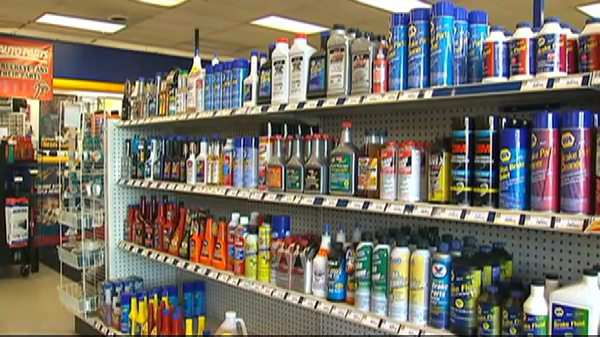
Fuel treatment and additive products are everywhere. You have probably seen the commercials and magazine ads, and, if you’ve recently visited the auto parts store, the huge fuel additive displays. Each one makes bold claims, promising to reduce emissions, improve gas mileage and get your whites cleaner. Many of these claims are suspect, however. Recently, the U.S. Federal Trade Commission compelled one additive company to provide refunds to consumers who purchased their worthless fuel treatment product.* Read on to learn more about fuel additives.
Fuel Injector Cleaners
Most cars today have fuel injectors rather than carburetors, so you may wonder about the products designed to clean injectors. Most newer cars feature what are called gasoline direct fuel injectors (GDIs), which are located within the combustion chamber. This location can mean trouble for injectors, however, and buildup is essentially a given. Removing this buildup requires a specialized service procedure for GDIs. If your car has the previous-generation port fuel injectors, some high-grade additives containing PEA are shown to be somewhat effective at removing deposits.
Fuel System Cleaning Products
Fuel system cleaners are designed to clean the entire system, not just the injectors. Those components include (if applicable for your car) carburetors, intake valves, ports and combustion chambers. These all-purpose additives can range from $10 to well over $100, and most have no scientific basis for their claims. Most car-care professionals advise against using these products if you already have a problem, but believe that some of the better ones are useful as a preventive treatment if you put a lot of miles on your vehicle.
When You Should Use Fuel Additives
If you don’t drive your car often, or if you have a vehicle that you only use on occasion, fuel stabilizer products will help prevent your gas from becoming stale. If your goal is to improve gas mileage, however, skip the additives and instead focus on keeping your tires properly inflated, your air filter clean and your wheels properly aligned. If you have an older car, additives can help reduce carbon buildup if you use them consistently. If you have a problem with water in your gasoline, look for a treatment containing the ingredient PIB, which is known to help remove water. The ingredient known as PEA contains nitrogen and is regarded as the one additive that can provide some degree of fuel system cleaning.
Providing car care services, safety inspections and on-the-spot registration renewal stickers in the Sandy and Salt Lake City areas, Emission Time provides the high-quality service that will keep your car running strong year after year. Visit Emission Time today for speedy, professional service. While you’re there, ask whether fuel treatment may be helpful for you.
